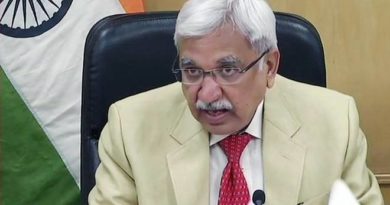HR in the midst of Pandemic
Akshay Gathia
The growing Coronavirus outbreak in India has disrupted the normal health services delivery system forcing hospitals and doctors to improvise emergency plans daily, even as they remain uncertain how bad the crisis will get. The challenge is medical and financial — but also political. So far, India looks pretty mild compared to the rest of the world. However, the strain on healthcare providers is clearly visible. How long overworked medical staff- doctors, nurses, and other paramedical- will be able to perform?
Despite acute shortage of doctors and nurses India is tackling Coronavirus epidemic better than many advanced countries. An analysis of medical infrastructure and other data show that country has an estimated 0.7 hospital beds per 1,000 people – a ratio that is one of the lowest in Asia. India has 1.7 nurses per 1,000 population, 43% less than the World Health Organisation norm (3 per 1,000). India has fewer hospital beds and doctors per 1,000 people than prescribed norms. This shortage is more acute in states like Bihar, Orissa, Madhya Pradesh and Rajasthan due to uneven rural-urban distribution. To fight the expanding outbreak, the country is relying on a medical system that is overburdened even in normal times. THE ARRIVAL OF A PANDEMIC :Though India has experience of tackling epidemic like smallpox, SARS virus, Degu fever, Malaria but this one is different, All the previous ones were confined to certain geographical areas and the cure was known. There are lessons to be drawn from some recent events- invoking Essential Services Management Act (ESMA) against nurses for complaining about inadequate supply of masks and personal protective equipment (PPE); doctors and health workers test positive of COVID 19 and patients misbehaving with nurses, female doctors and medical staff and above all violent attacks on health
workers during field survey as witnessed in Indore (Madhya Pradesh). These incidents call for an efficient HR management particularly for safety and well-being of healthcare providers. The healthcare providers need answers now to the problems they face. When crisis occur, the HR teams are called upon to redeploy employees, either temporarily or permanently, set expectations for communication and response times, and define clear roles for each member of these teams during a crisis.
Any outbreak strikes directly at our most valuable asset — our employees — and could last for months, so at the very least, an impact analysis becomes essential. Pinpoint functions impacted directly by “surge” activities that arise or increase during an outbreak. Identify key roles, activities and skill sets. Building operational resilience by bolstering bench strength in critical areas is crucial.
IMPACT ON THE HEALTH-CARE SYSTEM
Nurses and doctors may be able to work extended shifts for a week or two, but prolonged duties can burn the staff and reduce their performance even if they are willing putting up with the crisis. Some ICU patients may be moved to other units, and some medical or surgical procedures could be postponed. But most cases that require ICU care, such as strokes and heart attacks, would not wait. We need to determine how these everyday emergencies will be tackled. A useful and practical protocol offering a real solution to the problems of providing care to all in the face of a pandemic is possible and must be planned for at the local level now. ETHICAL CONSIDERATIONS:
The health-care system will experience critical shortages of pharmaceuticals of all types to treat secondary infections and complications. If Coronavirus type endemic strikes, the number of respirators needed could be enormous. For health-care workers to provide care for victims’ unfamiliar ethical decisions will surely confront them. For instance, they may have 10 patients in need but only six ventilators are available. They may have to choose between those who will or will not receive care. And that is not an easy decision to take.‘WHAT IF WE ALL GET SICK?’
As the number of cases continue to rise in the country, India’s healthcare system is already staggering and healthcare service providers are worried about short supply of PPE or safety against misbehaving patients. They are worried about the potential work disruptions to their own work more than their physical safety, and wonder how the organization plans to manage its operations. Another worry among healthcare personnel is fear for family safety. Steps must be taken ahead of time to educate health-care workers regarding selection and use of personal protective equipment, availability of prophylactic medications, and assurances that the fears and concerns they have will be addressed. Health-care workers want to be heard before they are in the midst of a crisis. If health-care managers and agencies take steps to deal with these issues, they will have a prepared workforce that is more likely to serve during an epidemic. APPROPRIATE COMMUNICATION: Communication is essential when preparing for a virus pandemic and any other public health disaster. The HR department needs to roll out appropriate communication about the Dos and Don’ts of Coronavirus. During a pandemic, actions taken willingly by the hospital staff in response to accurate, scientific information will reduce contagion and suffering. Clear, trusted, and coordinated communication with them is essential to avoid unnecessary risk of infection, confusion, anger, and the overwhelming demand. The HR teams must also ensure the employees stuck at hospitals or makeshift care facilities are able to communicate sufficiently with their family members. EMOTIONAL SUPPORT :During epidemic time hospital staff is tensed and may behave in ways that go against rules or expectations. Often management is quick to judge them, based on one or two of their behaviours. Quoting rules and instilling fearing will not yield desired results. The HR need to empower the staff rather than criticise, judge and deplete them further. By treating them with the energy of respect, right thoughts and peaceful vibrations will give them the power to change. The top priority for HR in healthcare during a pandemic is to put ‘employees’ first. We need to answer all the questions that healthcare providers have about the pandemic. More broadly, to ensure that employees believe that the organization is prepared to handle a crisis. The support staff in hospitals such as house-keeping, ward attendants, paramedical may not be able to provide advanced treatment support, but their role in identification of cases, contact tracing, quarantine and isolation monitoring, and referrals would prove significant. Their preparedness would depend on their training about the infection and its identification, transmission, diagnostics and treatment support. Preparedness of ambulance services in cases of emergency is also important. To conclude, India’s healthcare system is grossly inadequate to provide quality infrastructure and manpower to millions of its citizens is well known. What the COVID-19 pandemic has done is to bring a sense of urgency to fix it. What we need is true reform of our healthcare services. This is a long-term project that extends well beyond the lifetime of the present Corona pandemic. (The author is a Senior H.R. Executive, with Narayana Health Group India, Bengaluru. Email: akshayw@hotmail.com.
The views expressed are writer’s own and does not necessarily represent that of the organization and ebangla.in)




